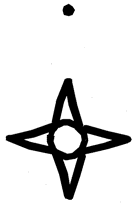Anthropology, Department of

Nebraska Anthropologist
Date of this Version
2007
Document Type
Article
Abstract
In 1987, the United States Congress enacted a policy that prohibited HIV-positive noncitizens from entering the United States for both temporary visits and immigration. Nearly two decades later, the policy still stands, making the United States one of only a handful of countries that still enforces such an exclusionary policy. Several international health organizations, including the World Health Organization, have condemned the HIV ban as "irrational and without public health justification" (Goldberg 1998). In 1993, the U.S. Department of Health and Human Services attempted to remove HIV from the exclusion list based on the fact that it is not transmitted by casual contact, but failed due to public outcry. Despite overwhelming evidence against the rationale behind the ban, the United States government still considers HIV a "communicable disease of public health significance" (Goldberg 1998). The United States' policy on the exclusion of HIV-positive noncitizens is not only discriminatory and unjustified, but it is also a violation of international human rights. This paper examines the ban in its entirety with special attention given to some exceptions to the ban, one of which is the acquisition of asylum. The act of seeking asylum based on HIV-positive status, whether due to one's membership in a persecuted social group or one's political opinion, is beginning to gain support in the immigration courts. It is because of the granting of HIV-based asylum that the United States' exclusion policy is no longer the obstacle that it once was.


Comments
Published in Nebraska Anthropologist Vol. 22 (2007). Copyright © Amy Vaughn; published by The University of Nebraska-Lincoln AnthroGroup.